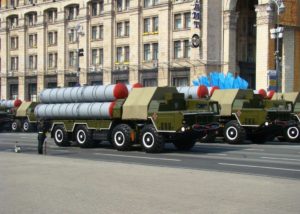January 16, 2017
Sarah Bidgood
On January 8th and 9th, 2018, the James Martin Center for Nonproliferation Studies hosted a workshop organized by the National Security Archive entitled “Nunn-Lugar, US-Russian-Ukrainian Relations, and the Withdrawal of Nuclear Weapons from Ukraine.” This event received support from Carnegie Corporation of New York and is part of an ongoing effort to capture the oral history of the Nunn-Lugar Cooperative Threat Reduction Program. The workshop in Monterey focused specifically on the denuclearization of Ukraine following the breakup of the Soviet Union in 1991. Participants included members of the George H.W. Bush and Bill Clinton administrations: Ambassador Steven Pifer, Dr. Susan Koch, and Dr. Gloria Duffy; Pulitzer-Prize-winning author David Hoffman; Malcolm Byrne of the National Security Archive; and Dr. Nikolai Sokov, Bryan Lee, and Sarah Bidgood from the Center for Nonproliferation Studies. The workshop was organized and led by Thomas Blanton and Dr. Svetlana Savranskaya of the National Security Archive and Professor William Potter, CNS director. The event provided participants with the opportunity to discuss their recollections and observations about this significant nonproliferation achievement.

Ukraine S-300 SAM during the Independence Day parade in Kiev, 2008 (Src; Wikimedia Commons)
Many of the USSR’s strategic nuclear weapons and delivery systems were housed on Ukraine’s territory during the Soviet era. As a result, Ukraine was left with the third largest nuclear arsenal in the world when it became an independent country in 1991. After three years of negotiations, Washington, Moscow, and Kiev reached an agreement that Ukraine would return the strategic warheads within its borders to Russia and accede to the Treaty on the Non-proliferation of Nuclear Weapons as a non-nuclear-weapon state. In exchange, the young democracy received compensation for the highly enriched uranium contained in the repatriated weapons, help from the then-new Nunn-Lugar Program to dismantle its nuclear infrastructure, and security assurances from the US, UK, and Russia.
While Ukraine’s denuclearization is often treated as a foregone conclusion today, this outcome at the time was far from guaranteed. Close cooperation between the United States and Russia was fundamental to persuading Ukraine to give up its vast nuclear inheritance. The details of these joint efforts are now accessible to the public through newly declassified primary source documents that the National Security Archive has obtained through Freedom Of Information Act requests. During their two days in Monterey, workshop participants reviewed these documents and supplemented them with their personal recollections and experiences. Through this exercise, they made several important observations about why these negotiations succeeded, including the role of individuals, Ukraine’s limited capacity to maintain a nuclear arsenal, and the desire of both Moscow and Kiev to establish positive relations with Washington in the post-Soviet era. In their discussions, the participants contemplated ways that these lessons could be applied to future situations that require denuclearization. They also identified questions about the motivations and actions of their Russian and Ukrainian counterparts that neither they nor the primary source documents could explain.
Because this workshop is one in a series that will address this topic, participants will have the opportunity to seek answers to these questions at a future dialogue that the National Security Archive is in the process of organizing. These events help ensure that the important lessons on nonproliferation cooperation that can be derived from Ukraine’s denuclearization are identified, documented, and passed on. Distilling these findings is especially important in the wake of the annexation of Crimea, which prompted some Ukrainian nationalists to assert that the country should have retained its nuclear arsenal. It is also fundamental to reaffirming the central importance of US-Russia cooperation to nonproliferation at a time when bilateral engagement on nuclear issues is almost nonexistent.
